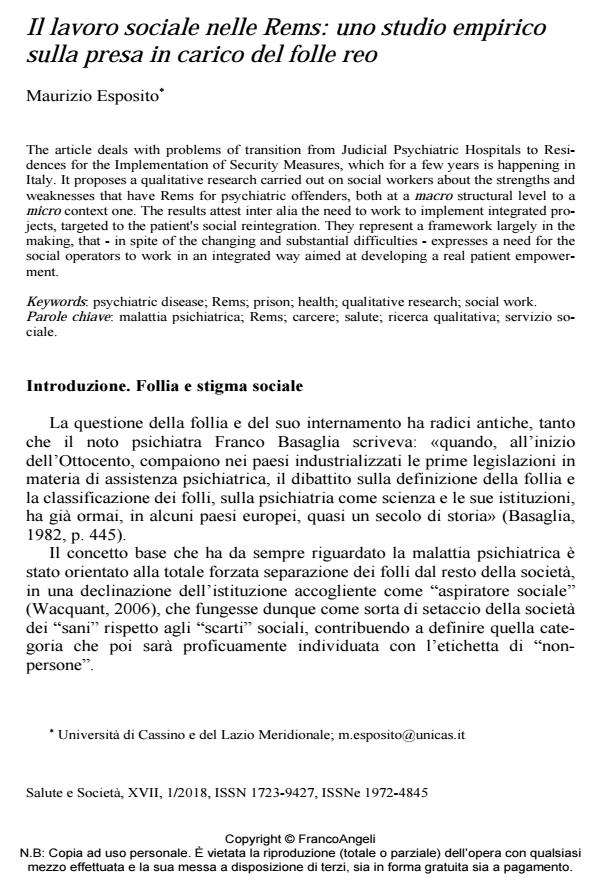Il lavoro sociale nelle Rems: uno studio empirico sulla presa in carico del folle reo
Titolo Rivista SALUTE E SOCIETÀ
Autori/Curatori Maurizio Esposito
Anno di pubblicazione 2018 Fascicolo 2018/1
Lingua Italiano Numero pagine 15 P. 73-87 Dimensione file 180 KB
DOI 10.3280/SES2018-001006
Il DOI è il codice a barre della proprietà intellettuale: per saperne di più
clicca qui
Qui sotto puoi vedere in anteprima la prima pagina di questo articolo.
Se questo articolo ti interessa, lo puoi acquistare (e scaricare in formato pdf) seguendo le facili indicazioni per acquistare il download credit. Acquista Download Credits per scaricare questo Articolo in formato PDF

FrancoAngeli è membro della Publishers International Linking Association, Inc (PILA), associazione indipendente e non profit per facilitare (attraverso i servizi tecnologici implementati da CrossRef.org) l’accesso degli studiosi ai contenuti digitali nelle pubblicazioni professionali e scientifiche.
The article deals with problems of transition from Judicial Psychiatric Hospitals to Residences for the Implementation of Security Measures, which for a few years is happening in Italy. It proposes a qualitative research carried out on social workers about the strengths and weaknesses that have Rems for psychiatric offenders, both at a macro structural level to a micro context one. The results attest inter alia the need to work to implement integrated projects, targeted to the patient's social reintegration. They represent a framework largely in the making, that - in spite of the changing and substantial difficulties - expresses a need for the social operators to work in an integrated way aimed at developing a real patient empowerment.
Parole chiave:Malattia psichiatrica; Rems; carcere; salute; ricerca qualitativa; servizio sociale.
Maurizio Esposito, Il lavoro sociale nelle Rems: uno studio empirico sulla presa in carico del folle reo in "SALUTE E SOCIETÀ" 1/2018, pp 73-87, DOI: 10.3280/SES2018-001006